
January 29, 2021 - The antibody-drug conjugate fam-trastuzumab deruxtecan-nxki demonstrated antitumor activity in patients with HER2-overexpressing non–small cell lung cancer, irrespective of expression levels.

Your AI-Trained Oncology Knowledge Connection!


January 29, 2021 - The antibody-drug conjugate fam-trastuzumab deruxtecan-nxki demonstrated antitumor activity in patients with HER2-overexpressing non–small cell lung cancer, irrespective of expression levels.

January 29, 2021 - Nab-paclitaxel proved to be noninferior to docetaxel, having showcased improved progression-free survival, overall survival, and overall response rate in patients with previously treated advanced non–small cell lung cancer.
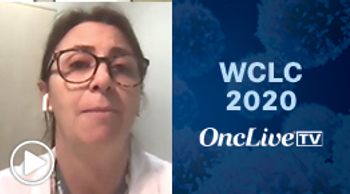
Margarita Majem, MD, PhD, discusses the patient-reported outcomes with osimertinib in EGFR-mutated non–small cell lung cancer from the pivotal phase 3 ADAURA trial.

January 29, 2021 - The combination of pembrolizumab plus concurrent chemoradiation therapy showed antitumor activity in patients with unresectable, locally advanced, stage III non–small cell lung cancer, regardless of PD-L1 status or tumor histology.
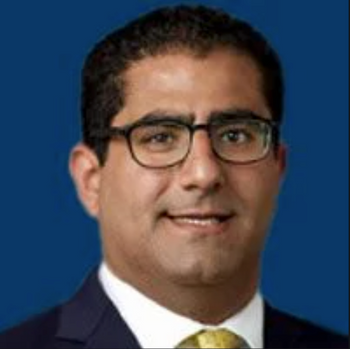
January 29, 2021 - Amivantamab elicited high and sustained responses in pretreated patients with non–small cell lung cancer harboring EGFR exon 20 insertion mutations.

January 29, 2021 - The first-in-class oral kinase inhibitor bemcentinib, when used in combination with pembrolizumab, demonstrated clinical activity with favorable tolerability in patients with checkpoint inhibitor–naïve and CPI-refractory composite AXL–positive non–small cell lung cancer.
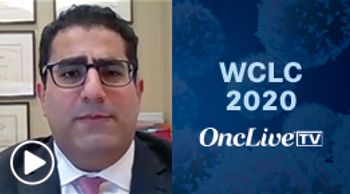
Joshua K. Sabari, MD, discusses updated results from the phase 1 CHRYSALIS trial examining amivantamab in patients with non–small cell lung cancer whose tumors harbored EGFR exon 19 deletion or L858R mutations.

January 28, 2021 - Treatment with the KRAS G12C inhibitor sotorasib (formerly AMG 510) elicited a 6.8-month median progression-free survival in patients with KRAS G12C–mutated advanced non–small cell lung cancer.

January 28, 2021 - Treatment with liposomal irinotecan demonstrated promising anti-tumor activity and safety in patients with small cell lung cancer who progressed on platinum-based treatment in the firstline setting.

January 28, 2021 - The NeoADAURA trial will evaluate the safety and efficacy of neoadjuvant osimertinib, as a single agent or in combination with platinum-based chemotherapy compared with chemotherapy alone, in patients with resectable, stage II-IIIB non–small cell lung cancer whose tumors harbor EGFR mutations.

January 28, 2021- Patients with non-small cell lung cancer who experience immune-related adverse events may have better survival outcomes than those without.
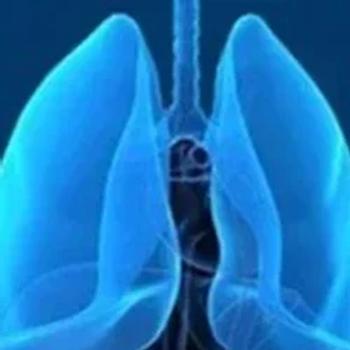
January 28, 2021 - The combination of osimertinib and savolitinib may be able to overcome MET resistance in patients with EGFR-mutant, MET-amplified or -overexpressed non–small cell lung cancer, including those who have previously progressed on a prior EGFR TKI.

January 28, 2021 - Atezolizumab demonstrated continued clinically meaningful benefits in overall survival, progression-free survival, overall response rate, and duration of response compared with chemotherapy in patients with PD-L1–high wild-type nonsquamous or squamous non–small cell lung cancer.

January 28, 2021 - Adding BMS-986012, anti–fucosyl-GM1 monoclonal antibody, to nivolumab demonstrated promising results in the treatment of patients with relapsed/refractory small cell lung cancer who did not receive previous checkpoint inhibitor therapy.
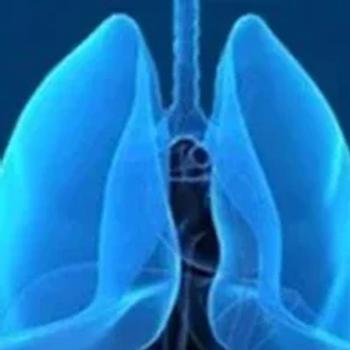
January 28, 2021 - Rapid, high, and uniform brain exposure was seen with [11C]osimertinib, followed by a reduction in total brain metastases volume with oral administration of the EGFR TKI in patients with EGFR-mutant non–small cell lung cancer and brain metastases.
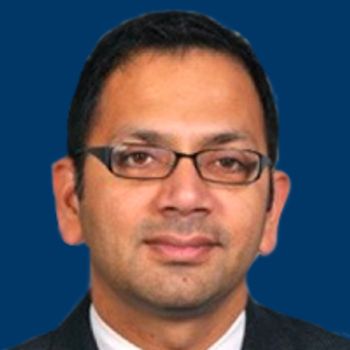
January 28, 2021 - NRG1 fusions are detectable in patients with non–small cell lung cancer, providing a rationale to perform larger, retrospective studies assessing therapeutic outcomes in patients with NRG1 fusion–positive tumors and evaluate afatinib in this patient subgroup.

January 28, 2021 - Immuno-oncology therapies provided significant potential health gains for both patients and the population, although age should be taken into account to improve accuracy and avoid bias.

January 28, 2021 — Frontline pembrolizumab continued to demonstrate clinically meaningful improvements in overall survival, overall response rate, and time to progression on next-line therapy compared with platinum-based chemotherapy in patients with locally advanced or metastatic PD-L1–positive non–small cell lung cancer without sensitizing EGFR or ALK mutations.

January 28, 2021 - Although survivors and patients with lung cancer felt that they were involved in the treatment decision-making process, nearly half of them reported that they knew what their treatment options were before making a decision.

January 28, 2021 — Pembrolizumab in combination with chemotherapy continued to show improved overall survival and progression-free survival compared with chemotherapy alone in patients with previously untreated metastatic nonsquamous non–small cell lung cancer.

Liposomal irinotecan achieved disease control in almost half of patients as a second-line treatment for small cell lung cancer, according to findings from Part 1 of the phase II/III RESILIENT trial presented at the 2019 World Conference on Lung Cancer.

The investigational Trop-2–targeting antibody-drug conjugate DS-1062 demonstrated antitumor activity in unselected patients with unresectable, advanced non–small cell lung cancer.
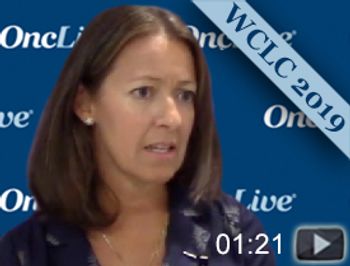
Rosario Garcia Campelo, MD, medical oncologist, University Hospital Caruna, talks about a randomized trial assessing health-related quality of life in patients with ALK-positive non–small cell lung cancer patients who were treated with brigatinib versus crizotinib.
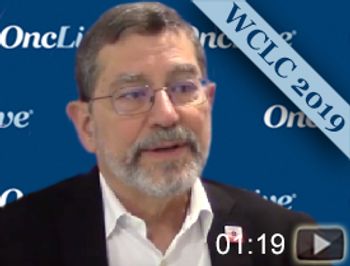
David Carbone, MD, PhD, director, James Thoracic Center, Ohio State University Comprehensive Cancer Center, discusses two abstracts on immunotherapy that were presented by colleagues at the 2019 World Conference on Lung Cancer in Barcelona, Spain.
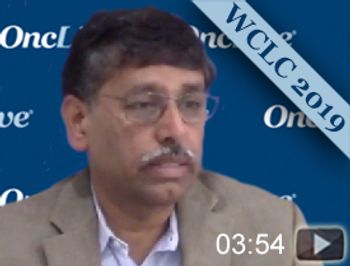
Ramaswamy Govindan, MD, professor of medicine, Washington University School of Medicine discusses the results of a phase I study looking at safety, tolerability, pharmacokinetics, and efficacy of KRAS G12C inhibitor, AMG 510 in patients with non-small cell lung cancer.

Targeted therapies for non­–small cell lung cancer produced mixed results in a novel multiarm clinical trial that matched tumor mutations to drugs targeting the mutations.

The addition of atezolizumab (Tecentriq) to carboplatin and nab-paclitaxel (Abraxane) showed a clinical overall survival benefit among a subgroup of patients with advanced squamous non–small cell lung cancer.

Treatment with nivolumab (Opdivo) was associated with a 5-year overall survival rate of 13.4% compared with 2.6% with docetaxel in patients with previously treated non–small cell lung cancer.
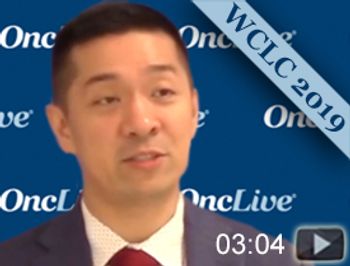
Alexander Drilon, MD, research director, Memorial Sloan Kettering Cancer Center, discusses the results of LIBRETTO-001, a phase I/II trial of RET inhibitor, selpercatinib in patients with RET fusion non-small cell lung cancers.
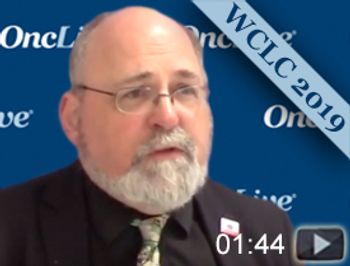
Corey J. Langer, MD, director, thoracic oncology, Penn Medicine, discusses the future of immunotherapy during a discussion about KEYNOTE-021 at the 2019 World Conference on Lung Cancer.